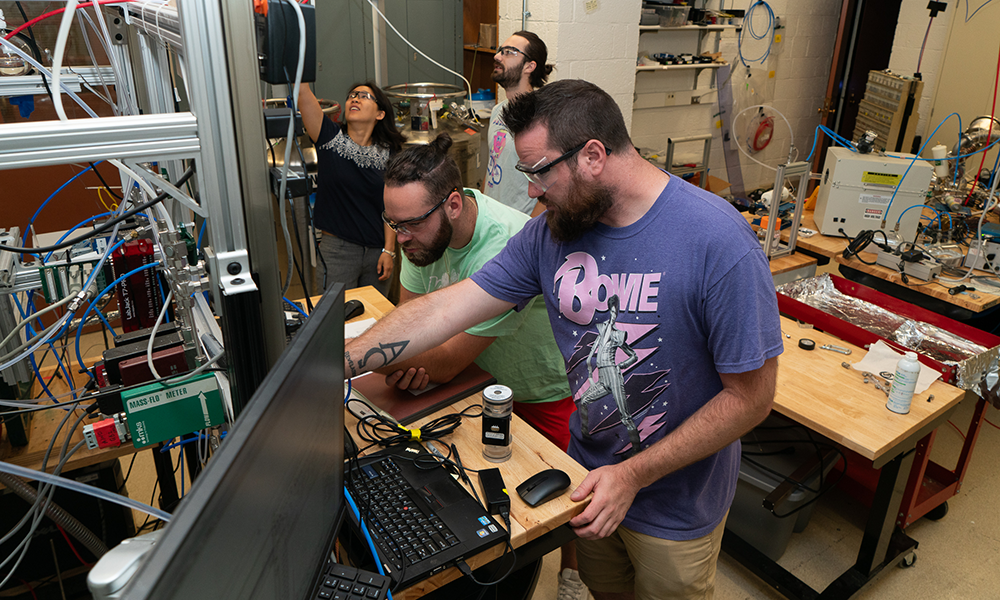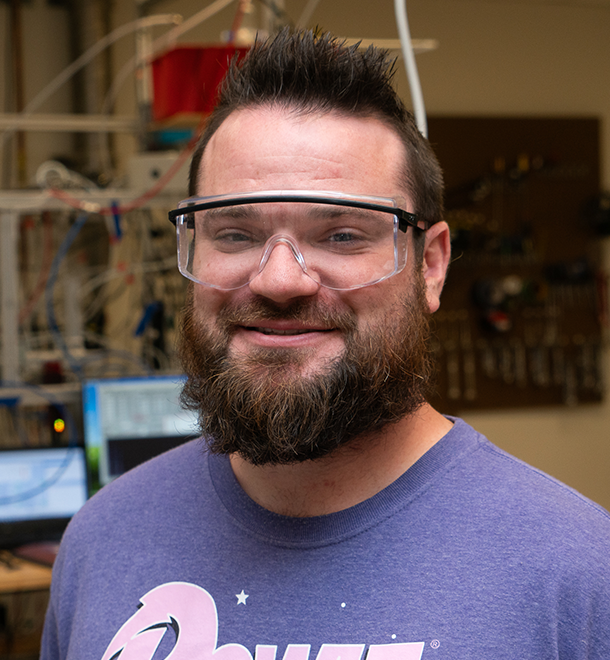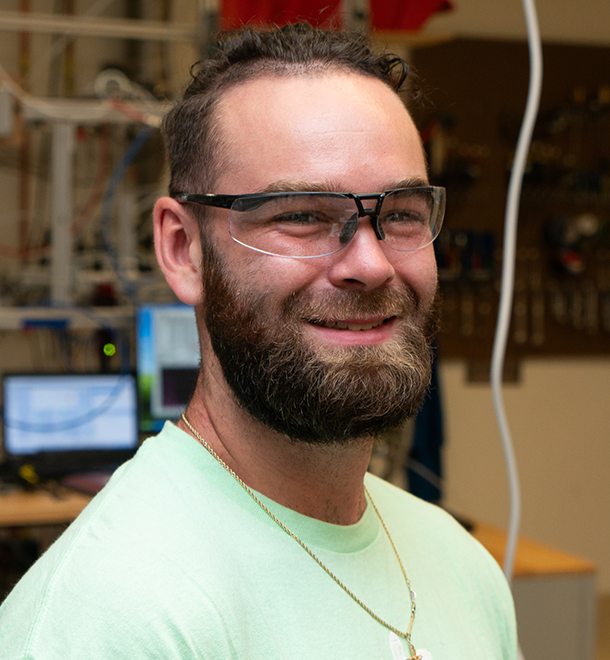Teachers turned researchers
Lauren Smith
Sep 7, 2023

Two new researchers joined the Jen Lab in July. Unlike most visiting researchers, Joe Hayes and Bryan Seybert are high school chemistry teachers. Through a National Science Foundation (NSF) grant, they spent the month on research and curriculum development.
Coty Jen developed the NSF proposal to help increase atmospheric chemistry and climate change literacy in the Pittsburgh area. Jen, an assistant professor of chemical engineering, noticed that kids don't retain very much from one-time outreach workshops. She wants to embed atmospheric chemistry into their science curriculum so students build intuition for how the atmosphere works. In addition, she's hoping to encourage more people from all backgrounds to pursue careers in atmospheric science to better understand our rapidly changing planet. This pilot program draws on the expertise that teachers have working within curriculum requirements and teaching diverse high school students in modern times.
Hayes and Seybert, the first participants, worked alongside Dominic Casalnuovo, a chemical engineering Ph.D. student, to look at how atmospheric ions impact air quality. "These ions are naturally occurring, and we poorly understand what they do," says Jen. Her lab is studying their interactions with various gaseous pollutants. With Casalnuovo, Hayes and Seybert used a mass spectrometer to analyze the kinetics of how ions and pollution form atmospheric particles.
This research is about how chemistry and the things we put into our air can have a very big impact on the formation of clouds and the shifting of climate patterns.
Bryan Seybert, high school chemistry teacher and visiting researcher, Department of Chemical Engineering
"This research is about how chemistry directly impacts climate and our weather patterns," says Seybert. "Like we saw with the wildfires in Canada this summer, the things we put into our air can have a very big impact on the formation of clouds and the shifting of climate patterns. That's the most exciting thing I'm taking out of this. We have a chance to do some really cool stuff with our students that is truly relevant to them."

Bryan Seybert
The public schools where Hayes and Seybert teach, like many others, are in the process of revamping their science courses by 2025, in response to new Pennsylvania science standards. "It's time for a monumental shift in the way we teach chemistry," says Seybert. "It's a very detail-oriented science. We get hung up on the particulars and don't focus on the big ideas in science literacy."
As part of the NSF grant, Hayes and Seybert are using their summer research experience to create a two to three week unit on atmospheric chemistry. They are designing it to be used a la carte, so that other teachers can select specific topics to fit their curricular needs.
"The beauty of our match-up is that our schools are so different," says Hayes. "What works in one classroom might not work in another. Together, we can make sure that what we roll out will be successful everywhere and appeal to the most teachers."
Hayes teaches at Pittsburgh Westinghouse Academy, in Pittsburgh's Homewood neighborhood. It offers fewer resources than South Fayette High School, where Seybert teaches in a growing school district southwest of Pittsburgh.

Joe Hayes
Both teachers share a commitment to making chemistry approachable and interesting to every student in their classrooms, not just the highest achievers. "That's where this curriculum benefits all students," says Hayes. "It allows them to make connections from what they've learned in class to better understand what they hear in the news and other media."
During the school year, Jen will help evaluate and adjust educational content as Hayes and Seybert bring their summer learning into their classrooms. She is applying for additional funding to continue working with them for three more years. "Based on my own teaching," says Jen, "I know it can take a few years to smooth out how new curriculum material works in the classroom." Jen also envisions developing an exchange, where the teachers and their students will do experiments in their high school labs and then visit Jen's lab to conduct additional experiments.
The vision is to make project-based learning a sustained experience. "We want to sprinkle it throughout the whole year, layered over and over, to help students understand and remember," says Hayes.
For media inquiries, please contact Lauren Smith at lsmith2@andrew.cmu.edu.
